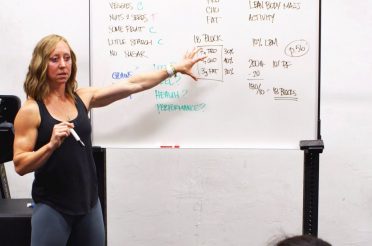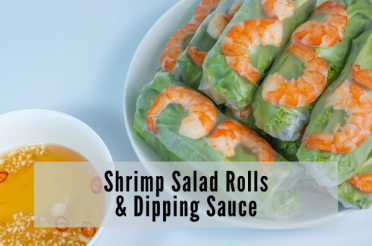[ad_1]
Inspiring ED Recovery Story for World Eating Disorder Action Day June 2

June 2 is World Eating Disorder Action Day a grassroots movement designed for and by people affected by an eating disorder, their families, and the medical and health professionals who support them. Uniting activists across the globe, the aim is to expand global awareness of eating disorders as genetically linked, treatable illnesses that can affect anyone. The Fourth Annual World Eating Disorders Action Day will take place on 2 June 2019 across the globe. This year our focus is “Eating Disorders Can’t Afford to Wait”!
For more information on 4 common myths about eating disorders read our previous blog post here: Eating Disorder Myths.
To help inspire you that recovery is indeed possible please read this story from one of our previous clients below:
Eating Disorder Recovery Story from Powerlifter Erika Stark
For the last three years, the bulk of my life has centred around the scale and my food intake. I’m a competitive powerlifter, which is a sport that includes weight classes. This past season, I decided I wanted to cut to the 63 kg weight class – I usually walk around comfortably at about 68 kg, and I felt that I had the chance to be more competitive if I competed as a 63 kg.
My whole life became about how much I weighed, and how much I ate.
If I woke up half a pound lighter, I felt like a champion. My whole life was numbers: how much water have I had? How long has it been since I ate? How much fat is left in today? How much have I trained today? I existed in a completely black and white world where I felt I had to be perfect, or I would fail. But I kept going, because in my mind, this was the only way I could achieve my goals.
When I woke up on meet day last June, it felt like it was all worth it. And for that day, it was. The sacrifices I’d made had paid off, and I was ready to go. I had an incredible meet, hitting all-time personal records in two of my lifts. I was on top of the world.
But very quickly, I found myself at rock bottom.

In theory, after cutting for a meet, you’re supposed to “reverse diet” back up to a regular amount of food, and then maintain there until it’s time to cut down again for the next meet. That’s not how it turned out for me.
I’d existed in an environment of food scarcity for so long that I was now terrified of being hungry, of restricting, of telling myself no. I entered a vicious cycle where I would vow to myself that I’d stick to the plan, and then something would happen to upset that plan. Something as simple as having an extra cookie that put me over my macros would result in me completely throwing in the towel for that day; after all, I’d “ruined” my diet already, so why stop there? Then I’d binge on snacks or other food, and would often immediately purge after. I’d wake up the next day, feeling miserable but ready to make the day better. And it would repeat. I couldn’t escape from my black and white approach to nutrition.
In my mind, if I didn’t follow my food plan exactly, I was a failure. I was less of an athlete. I wasn’t dedicated enough to achieve my goals. I wasn’t good enough. I would never be good enough. Those negative feelings in turn made me cling harder to my nutrition plan.
This cycle continued for months, until I finally realized that something had to change. When I first started working with my eating disorder Dietitian at Health Stand Nutrition earlier this year, I’ll admit I was very skeptical about what I’d be hearing. Despite all I’d been dealing with, I was still CONVINCED that the only way to be successful as an athlete (or anyone with any kind of physical or aesthetic goals) was to track everything and be perfect. I thought any kind of intuitive eating was a fancy way of saying “just give up and stop trying,” and that anything less than perfection just meant that I wasn’t as good of or as dedicated an athlete as “all the other girls who seem to be totally fine tracking their lives away.”
Over four months, my eating disorder Dietitian and I slowly chipped away at my black-and-white approach to nutrition. Not only was I learning how to manage an eating disorder, I was also tasked with uncoupling my self-worth from my weight. I had to learn to respect my body again, to listen to it, and rebuild my trust in it. It was uncomfortable, and it was hard. I’m pretty sure the first five or six sessions we had together started with me asking, “so how do I know if I’m doing this right?” But eventually I learned that it’s okay to exist in these shades of grey, where decisions and behaviours exist in a spectrum rather than as a good/bad binary.
During our time together, my life has genuinely changed for the better in so many ways. I think I’m finally at the stage of body respect AND acceptance. My relationship with my partner has improved immensely, my physical fitness and recovery is the best it’s been and my mindset is mostly positive. I am catching myself before snap judgments (either self-judgments or judging of others) become full fledged thoughts that I act on or internalize.
I can make waffles on Sunday morning without feeling like I need to not eat for the rest of the day. I can walk away from my plate when I’m full because I know that if I want another waffle later, I can have another waffle! I can dive into our favourite chicken fingers off Skip the Dishes – but know that I’ll feel better and less crampy afterwards if I only have a few fries rather than the whole serving. It’s an active choice I’m making, one that’s fueled by positivity and trust in what my body needs, rather than guilt or shame.
Every so often I’ll hear the voice of my eating disorder in my head, and most days it’s pretty easy to ignore it. And when it’s persistent, I have a toolbox of coping mechanisms that can help me to overcome the urges to binge, purge or restrict.
What’s more, my own experiences and successes have acted as a catalyst for my own career goals and aspirations. I’m continuing to read and learn and develop my own knowledge and skills around both movement and nutrition, and it’s my hope that I will eventually be able to do my part as a strength and nutrition coach in helping other people find a little bit more peace when it comes to movement, food, and all of the external pressures that seem to make those things so much more complex than they need to be.
I cannot accurately put into words how much the last four months of working with my eating disorder Nutritionist at Health Stand Nutrition has meant to me.
Everything is different now. And everything is SO much better.
Sincerely,
Erika Stark
Read more inspiring ED recovery stories here:
Eating Disorder Recovery Success Stories
Looking for support from an eating disorder Dietitian for ED recovery for yourself or a family member?

Contact us so we can arrange a private call to discuss your history and our in-person and virtual nutrition counselling services. We get it. We understand you want to recover from your eating disorder but are scared to let go at the same time. This is because we’ve worked as Eating Disorder Dietitians with clients that have food and body image struggles since we started our practice back in the year 2000. We specialize in nutrition counseling for anorexia, bulimia, ARFID and binge eating disorder and can work collaboratively with your doctor and therapist to support you in recovery. Find out more about our eating disorder help here: Eating Disorder Dietitian Online & In-person
[ad_2]
Source link







